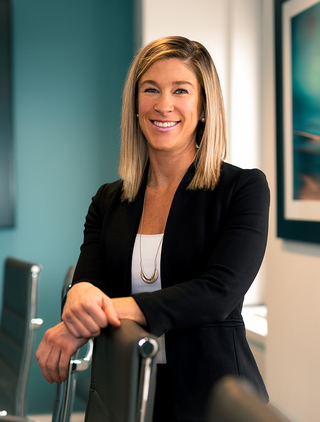Education | May 23, 2024
As Financial Uncertainty Grows for the Next Generation, the Time to Plan is Now
Taylor GlockMBA
MBA
Jeremy L. SuschakCFP®
CFP®

Every generation faces circumstances that shape its outlook on their lives and their money. Yet today’s younger generations have experienced more obstacles to financial success than many previous generations. Managing money for many has become a concern. The problems of saving, investing and planning for the future are clouded by worries of college debt, an expensive housing market, uncertainty about social security and more.
Unfortunately, very few firms in the financial services industry have made serving this generation a priority. You’ve seen all the ads referencing asset minimums: “If you have $500,000 or more, give us a call.” At DBR & CO, we not only see the value in working with young individuals and families, but we also developed a specific service, DBR Next, to address their unique needs. Creating a financial plan for emerging wealth can be exciting and rewarding, and DBR Next advisors do so within the flexible structure of an open-ended, consultative relationship.
The next generation’s need for financial planning is clear. A recent study of the cohort by Lending Tree uncovered some sobering statistics: More than two-thirds (69 percent) of millennials weren’t taught how to handle debt.¹ Only three out of five (59 percent) millennials say they were taught about setting up emergency funds or short-term savings. 71 percent of millennials learned nothing about saving for retirement. Four out of five (81 percent) millennials say they didn’t learn about investing early on.
There are certain challenges that come with creating a financial plan for younger generations. For instance, helping Millennials and Gen Y individuals focus on a retirement that could be 30 or more years away requires balancing the need to plan for the future while managing today’s financial challenges. For DBR Next, it’s about setting priorities and following a plan to see them through.
Investing in retirement
We recommend that young professionals with high-paying jobs save a large percentage of their salary early in their careers if possible. Then, if retirement saving is stalled or slowed later on due to major events in like marriage, children, job loss or career change, the money invested early on will have built a solid foundation upon which it can compound over time. For example, if they invested $50,000 in their 401(k) at age 25, assuming a seven percent annual return, they would be sitting on nearly $408,000 or more by the time they are 65 simply through compounding.²
Now, imagine the additional benefit of making a monthly contribution to that plan for all those years? We also recommend taking full advantage of any matching funds if provided by the employer - on average, this match represents 3% to 6% of your salary. An effort should be made to contribute at least enough to receive the maximum employer match. This is essentially free money that can be earned simply by contributing to the account. This makes a strong case to prioritize saving as long as it doesn’t prevent you from covering living expenses or meeting other financial obligations.
Managing debt
More than 70% of millennials carry some form of non-mortgage debt, with an average balance of $117,000.³ If these large debts include consumer credit with compounding high interest rates, then they will be challenging to pay off in a timely manner. In addition, taking on temporary debt for education can be a good investment in one’s future, but it's important to manage this debt responsibly. That’s why it is important to have a plan in place for paying off debt. Finding the right balance between paying off debt and setting money aside for saving and investing is critical. Yet, this can become just as much an art as it is a science when you factor in each individual’s personal short- and long-term goals. That’s where DBR Next can help deploy practical budgeting tactics to help rebuild confidence in one’s financial future.
Saving for emergencies
Having an emergency fund is critical in the event you get hit with unexpected expenses. We suggest prioritizing saving until you have built up three to six months’ worth of living expenses. This fund should be maintained and adjusted over time as living expenses change. To work towards this goal, begin by setting a minimum amount to put away, and then strive to meet or exceed that initial amount every month or every paycheck. Having cash on hand for unexpected circumstances may help to avoid having to borrow money and incur potentially costly debt. This financial safety net can also provide peace of mind that you will not be derailed as you progress towards your longer-term objectives.
Summary
Next Generation achievers have a lot to look forward to in life. With proper guidance and financial education, they can put themselves on the right path toward achieving long-term wealth. This can be advanced and accomplished through a well-conceived financial plan. It can include establishing short and long-term goals, creating a structured savings and spending plan (and sticking to it), developing strong knowledge of retirement plan options and maintaining the appropriate balance between paying down debt and investing.
Offering a service such as DBR Next is rare in our industry. But there is great satisfaction in working with up-and-coming professionals and helping them over time. If you would like to learn more about DBR Next and how it might be able to help solidify the financial foundation that you or a family member needs, please feel free to reach out.
Sources
¹ Lending Tree survey March 13. 2018 https://www.lendingtree.com/student/debt-most-common-for-millennials-money-stress-survey/
² Investor.gov compound interest calculator https://www.investor.gov/financial-tools-calculators/calculators/compound-interest-calculator
³ O'Connell-Domenech, A. (2022, August 3). Millennials are more than $100k in debt, most not from mortgages: Report. The Hill. https://thehill.com/changing-america/enrichment/arts-culture/3584900-millennials-are-more-than-100000-in-debt-most-not-from-mortgages-report/
This material has been provided for general, informational purposes only, represents only a summary of the topics discussed, and is not suitable for everyone. The information contained herein should not be construed as personalized investment advice or recommendations. Rather, they simply reflect the opinions and views of the author. D. B. Root & Company, LLC. does not provide legal, tax, or accounting advice. Before making decisions with legal, tax, or accounting ramifications, you should consult appropriate professionals for advice that is specific to your situation. There can be no assurance that any particular strategy or investment will prove profitable. This document contains information derived from third party sources. Although we believe these third-party sources to be reliable, we make no representations as to the accuracy or completeness of any information derived from such sources, and take no responsibility therefore. This document contains certain forward-looking statements signaled by words such as "anticipate," "expect", or "believe" that indicate future possibilities. Due to known and unknown risks, other uncertainties and factors, actual results may differ materially from the expectations portrayed in such forward-looking statements. As such, there is no guarantee that the expectations, beliefs, views and opinions expressed in this document will come to pass. Information presented herein is subject to change without notice and should not be considered as a solicitation to buy or sell any security. All investment strategies have the potential for profit or loss. Asset allocation and diversification do not ensure or guarantee better performance and cannot eliminate the risk of investment losses.

Taylor Glock
MBA
Financial Advisor

Jeremy L. Suschak
CFP®